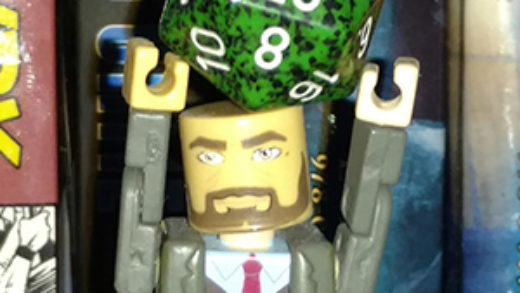Player characters are often focused on the current and next adventure. Even if the characters don’t need to sleep, everyone needs to rest, recharge, and unwind. A character’s home (or lack thereof) provides new ways to define the character, provide role-play opportunities, and adventure hooks.
What Makes a House a Home
When asking players to define their characters it’s important to ask where the characters live. Not only what their lifestyle is, but how they decorate. Does their character own or rent? What kind of layout is their dwelling? Is their house Spartan, full of personal trophies and hand-me-downs, or decked out with all the latest amenities? Are rooms decorated and designed for display or comfort? What kind of art adorns the walls and halls? It’s not necessary to list every item in the house, but how a character makes a house their own (or chooses not to) provides an insight for both the player and the GM into the character’s personality.
In a Ship or On the Road
Many campaigns put the characters moving from place to place as they seek out new adventures. Campaigns involving a large vessel (land-ship, spaceship, sea ship) typically allows the characters a room or cabin, even if shared. Like decorating a house, questions of how the characters decorate their space also come into play. In cases of a shared room, this can lead to unique role-play as the characters decide how their styles adapt or conflict within the space.
If each character has their own vehicle for reaching their destination, what kind of vehicle is it and how do they keep it maintained? For example: is the exterior a sleek and flashy speed-demon, but filled with fast food wrappers accumulated while traveling? Is the vehicle large enough to accommodate sleep or does the character typically stay in motels or hotels during the journey?
In fantasy or wilderness games, choices are more limited for travel and lodging, but how the characters pack and what kind of tents they may use still can be asked. Food is a universal and how picky a character might act about their rations can also provide details about their personality.
A Base of Operations
If the characters share a space to plot out their adventures or recuperate, such as a headquarters then their rooms can be treated like a ship’s, providing the same questions. It also means the characters all share a space; potentially with NPCs. That space can have similar conflicts of decor or lifestyle.
Multiple Rooms
Do the characters still maintain a home while they are away or outside of their HQ? If not, where do they put their larger items and mementos, if such things are kept?
Trophies and Items
Throughout the adventures, it’s likely that player characters will collect some mementos of their journeys. Ask the players what their characters like to keep and how they display their items. Also consider how items can be used as adventure hooks. Some adventure ideas for a character’s trophies include:
- Stolen goods – even if the player character didn’t steal the item, it may have once belonged to another force that may not be forgiving of their goods being in the hands of another
- Cursed artifacts – the memento in question may have a curse or carry a dormant disease that begins affecting the character when they’re home
- Culturally inappropriate – it may seem like a beautiful piece of art to the character but visitors (parents, romantic involvements, visiting delegates) find it offensive
- Actually alive or teeming with life – the statue may be a dormant life form that awakes, or the item may have the eggs of insects, wreaking havoc on the homestead
- Worth more than expected – what seemed like a trifle to remember an adventure may be a collector’s item, hide important information (a plot hook for the next scenario), or provide unique blessings
Housing Expenses
Lifestyle and living expenses are rarely examined or are simply a footnote in most games. I avoid unnecessary bookkeeping for myself and my players whenever possible, but the fortunes and misfortunes characters face in a campaign should also factor into their home. If the characters are becoming wealthier then perhaps they will upgrade their living space or move. This may not be a session in and of itself, but can be a side note in a game, as the character deals with contractors, realtors, and movers.
If the characters are failing in their missions or operating above their budget, then this presents options for role-play and adventure hooks as the characters negotiate contracts or take jobs they normally wouldn’t to keep their home. Even if the character’s home is paid for, expenses will still accrue and nothing is free.

Recent Comments